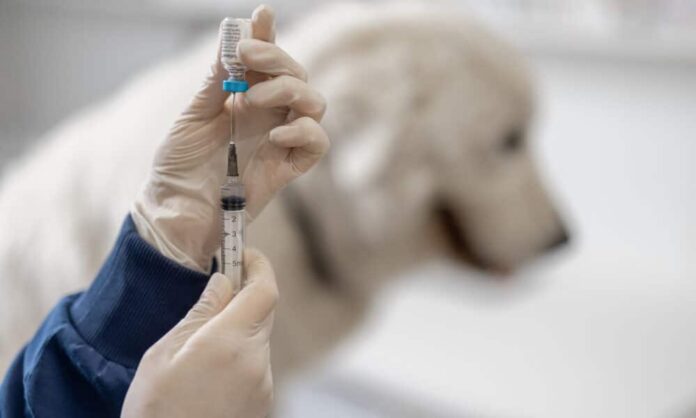Growing Skepticism Among Dog Owners: The Rise of Canine Vaccine Hesitancy
A recent study published in the medical journal Vaccine has unveiled a troubling trend among dog owners in the United States: more than 50% express skepticism about canine vaccinations, particularly regarding the rabies vaccine.
Study Insights and Methodology
Conducted on August 26, the survey involved 2,200 participants who shared their views on routine canine vaccinations. The researchers identified a phenomenon termed “Canine Vaccine Hesitancy” (CVH), defined as “dog owners’ skepticism about the safety and efficacy of administering routine vaccinations to their dogs.”
Notably, 53% of surveyed participants reported experiencing CVH, raising concerns over perceptions of vaccine safety and effectiveness.
Concerns About Safety and Efficacy
The study findings highlighted specific worries among dog owners, including:
- A belief that canine vaccines may be unsafe, ineffective, or unnecessary.
- 37% of respondents expressed fears that canine vaccines could contribute to conditions such as autism in dogs, despite a lack of scientific support for this theory.
Researchers’ Perspectives
In an interview with USA Today, lead researchers Matt and Gabrielle Motta, along with Dominik Stecula, expressed their surprise at the level of skepticism. Matt Motta, a political scientist at Boston University’s School of Public Health, remarked, “The sheer volume of people who hold these opinions was quite striking…that, to me, is pretty alarming.”
He added, “I believe the COVID-19 vaccine has fundamentally changed the way that Americans view vaccination in general,” warning of potential spillover effects on perceptions of pet vaccinations.
The Veterinarian’s Perspective on Vaccine Hesitancy
Gabriella Motta, a board-certified veterinarian, provided insight into the motivations behind pet owners’ hesitancy. She noted that concerns often stem from a genuine love for pets and an aversion to what they may perceive as unnecessary risks. She stated, “When owners are questioning the vaccine, they’re coming from a place where they truly care about their dogs and they don’t want them to be a guinea pig.”
Nevertheless, she emphasized the crucial role of vaccinations in protecting public health: “We don’t experience what other countries do where rabies is a legitimate fear that people have.”
The Implications of Canine Vaccine Hesitancy
The researchers labeled CVH as “problematic,” citing its potential to promote vaccine refusal and thus facilitate the spread of infectious diseases among both dog and human populations. They highlighted that maintaining a vaccination rate of at least 70% among dogs could significantly reduce human rabies cases, especially in high-risk areas.
However, CVH poses a serious threat to achieving these immunity benchmarks, with the researchers warning that vaccination rates could ultimately fall below the critical 70% threshold.
As the study concludes, “Troublingly, we find that CVH is associated with rabies non-vaccination, as well as opposition to evidence-based vaccine policies.”
Understanding the Global Context
According to the World Health Organization, dogs account for 99% of human rabies-related deaths worldwide. This statistic underscores the critical role dogs play as carriers of this viral disease, making vaccination not just a concern for pet owners, but a significant public health issue.
The growing trend of CVH among dog owners demands attention, as it poses risks not only to animal health but also to public safety. Continued education and open dialogue may be essential in overcoming skepticism and ensuring healthy, vaccinated pet populations.












